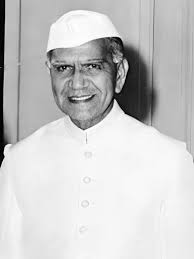Understanding the Role of the President of India in 2023

Introduction
The President of India serves as the ceremonial head of state and is a vital part of the country’s democratic framework. As the constitutional leader, the President’s role is crucial in ensuring that the government operates within the bounds of the Constitution. Understanding the position of the President of India is essential, especially in the current political climate marked by significant challenges and transformations. As of 2023, the President plays a critical role in shaping policy and responding to contemporary issues.
Current President and Their Leadership
As of now, Droupadi Murmu holds the office of the President of India, having taken office on July 25, 2022. She is the first tribal woman to be elected to this high office, marking a significant milestone in Indian history and representation. President Murmu’s leadership style emphasizes inclusion and developmental initiatives, focusing on education, health, and women’s empowerment, which resonate well with her background and constituency.
Significant Responsibilities of the President
The President of India has various important responsibilities, including:
- Legislative Role: The President summons and prorogues Parliament sessions, gives assent to bills, and has the power to dissolve the Lok Sabha.
- Executive Powers: The President appoints the Prime Minister, other ministers, governors of states, and various other officials in the Central government.
- Judicial Powers: The President has the authority to grant pardons, reprieves, respites, or remissions of punishment under Article 72 of the Constitution.
Recent Events and Future Directions
In the recent context, President Murmu has participated in various key national discussions, addressing issues such as climate change, economic recovery post-COVID, and educational reforms. Her speeches often emphasize the need for unity in diversity, a critical aspect of India’s strength.
Looking ahead, the role of the President might evolve to engage more actively with pressing national concerns such as regional disparities and social justice. With the upcoming elections and potential shifts in political landscapes, the President’s influence in guiding constitutional norms will be pivotal.
Conclusion
In summary, the President of India is an integral part of the governance structure, embodying the constitutional spirit of the nation. Under the leadership of Droupadi Murmu, the expectations from the Presidency are high. The evolving nature of this role, influenced by contemporary issues, is significant for the citizens and the future of India. As the nation grapples with various socio-economic challenges, the presidency’s role in fostering unity and progressive change remains ever crucial.









